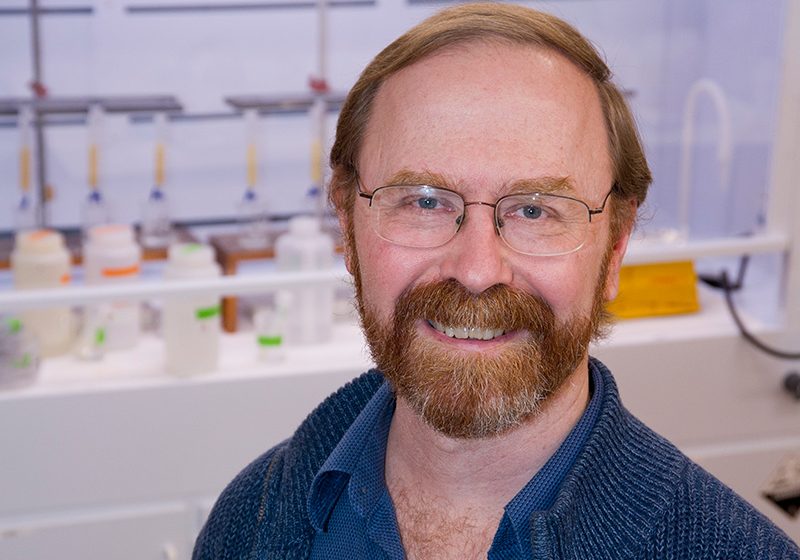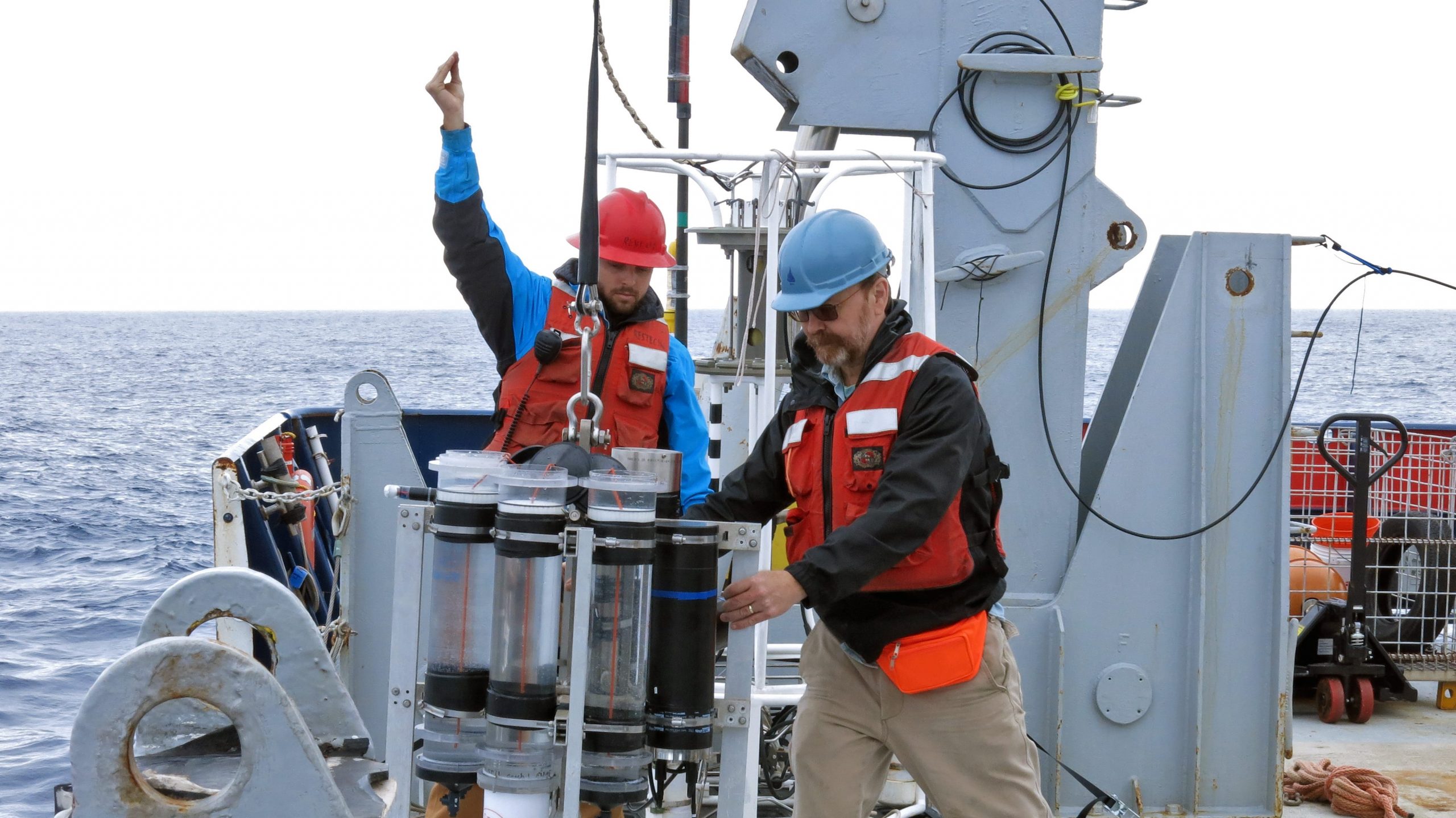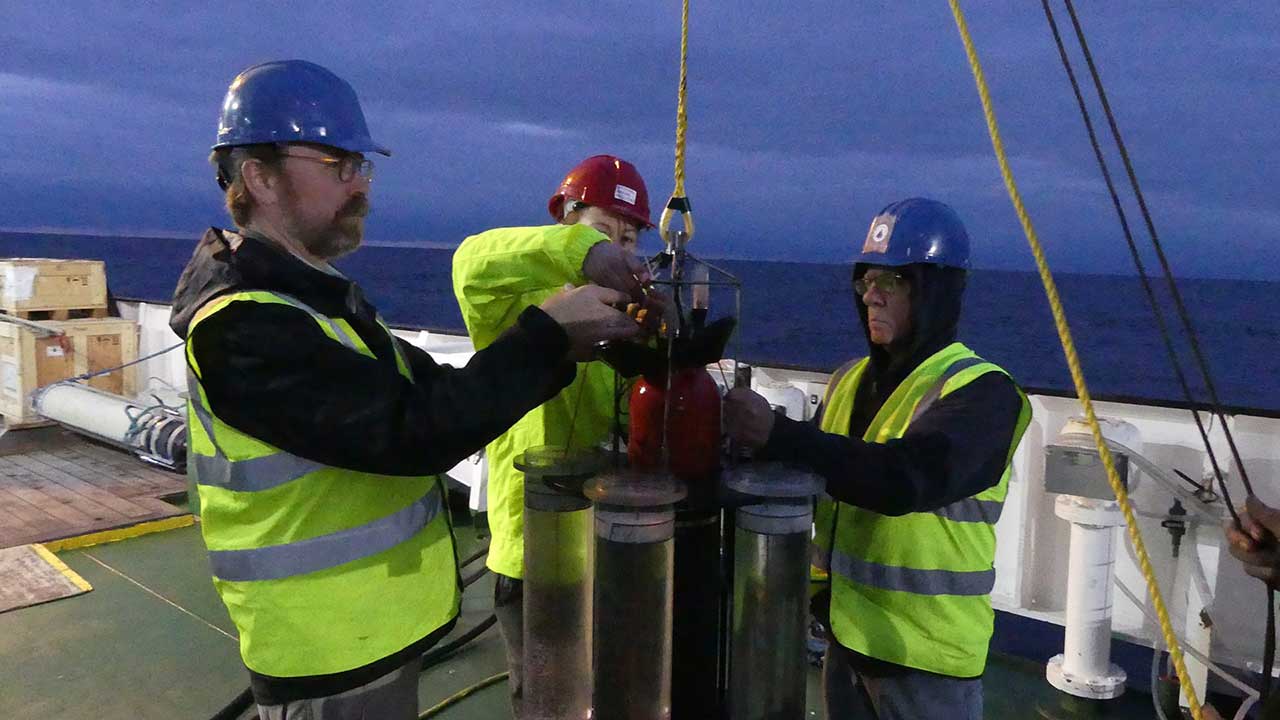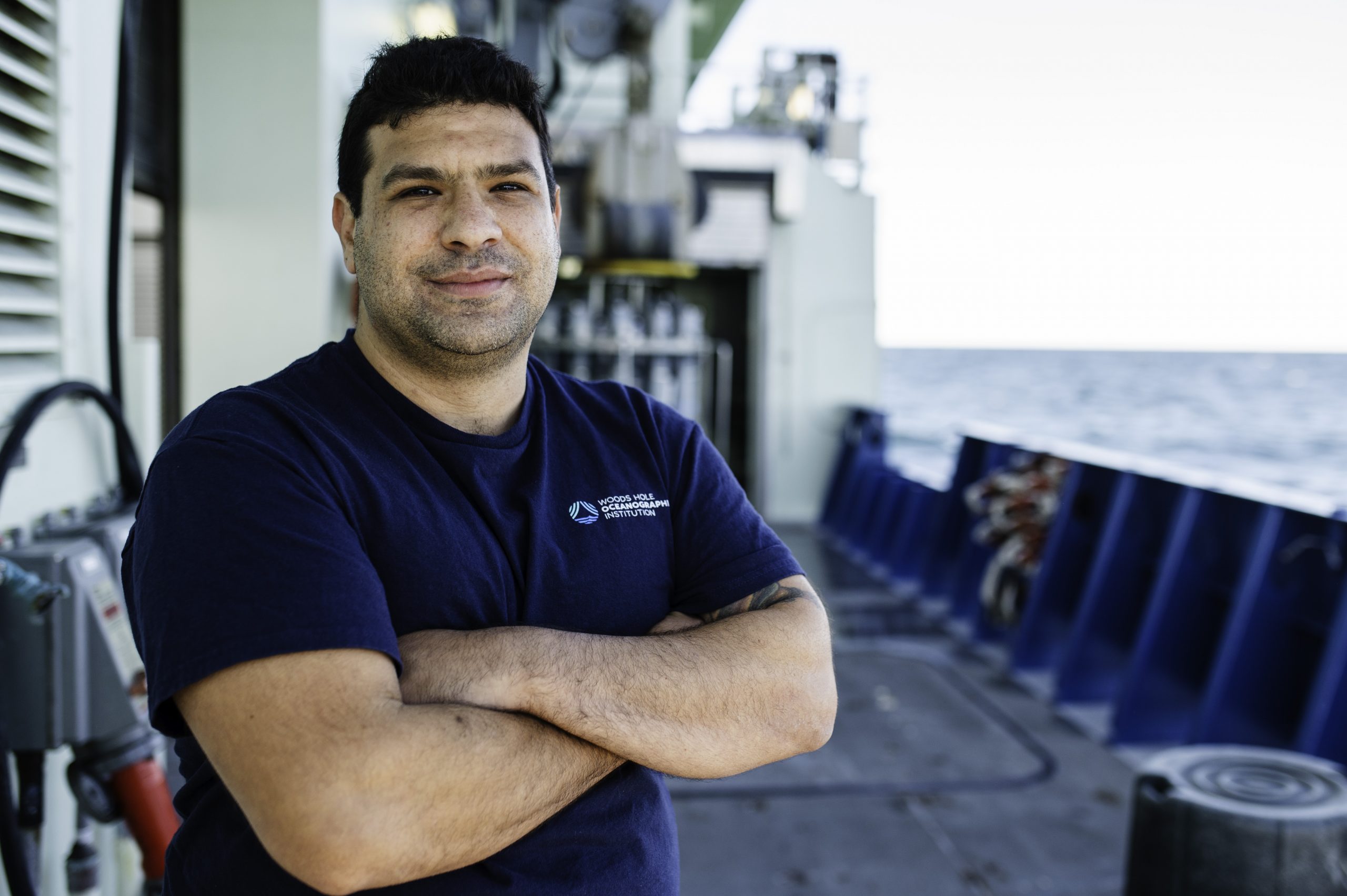Spotlight: Ken Buesseler November 6, 2020

Ken Buesseler has always been fascinated by radioactivity. As a marine radiochemist, he uses radioactive particles—which can enter the ocean from erosion, man-made atomic bomb tests, or nuclear meltdowns—to study the ocean’s natural processes. By analyzing these particles in seawater, he’s able to turn them into tools for dating sediment layers, tracking ocean currents, and pretty much anything else. Buesseler is currently using them to understand the movement of carbon through the ocean twilight zone.
What kinds of questions are you trying to answer about the ocean twilight zone?
I really want to know what the twilight zone’s role is in the ocean’s biological carbon pump. The carbon pump is a process that takes carbon out of the atmosphere and moves it into the deep ocean, which means that it has a big impact on both food webs and global climate—but we don’t yet have a great understanding of how it works.
At the moment, we do know that nearly a third of the carbon dioxide we release in to the atmosphere is removed and stored in the ocean. There are all sorts of critters that migrate to the surface every night to feed on that plankton, and when they return to the twilight zone, they bring carbon back down with them. But along the way, they're also being eaten, or dying, or pooping, all of which sheds organic matter that sinks to the bottom. So how does that affect the carbon pump? I want to measure those particles—which we also call “marine snow”—and see how they change at different depths. Are the amounts different from day to night? Does the huge migration of animals to the surface affect the amount of marine snow at different times or places? If we know that, then we can create a better model of how carbon moves in the ocean, and predict its impact on climate with more certainty.
How are you starting to chip away at those questions?
I’m working on both new methods for collecting those particles, and trying to figure out who’s eating who in the twilight zone by tracking radioactive elements. There are a lot of those in the ocean—some get there naturally, as rocks on land weather and release tiny amounts of uranium. Some come from nuclear weapons testing, or accidents like the Chernobyl and Fukushima nuclear meltdowns. Radioactive particles like those are actually pretty cool, because you can use them to measure all sorts of things. Throughout my career, I've dated deep sea sediments by measuring a naturally-occurring radioactive isotope of lead-210, and I’ve analyzed how fast water moves from shallow to deep areas based upon the penetration of Chernobyl fallout in the Black Sea in the 1980’s.
When it comes to the OTZ, I look for isotopes of thorium. By measuring that, I can tell you how quickly marine snow is being transported to the deep ocean—quite simply, the less thorium there is in a sample, the faster it’s getting to the bottom. It’s pretty amazing that the whole pathway of carbon sequestration and removal can be tracked by something radioactive, which I can measure in the lab.

Based on what you’re seeing, how might the OTZ change over the next few decades? And what impact would that difference have?
As climate change continues, we’ll see the ocean get gradually warmer and more acidic. And if it’s warmer, it’ll also be more stratified, meaning its various layers won’t mix as easily. That will affect things like the supply of nutrients available to organisms growing at the surface, which in turn means you're going to see changes in its food webs, and the types of animals that live there. Will there be more jellyfish? More diatoms, which have silica shells that let them sink more effectively? All of those food web dynamics will affect the top layers of biological carbon pump. And when you get down into the twilight zone, the animals living there may change as well. Will the dominant species at that point continue moving up and down in the water column? Will they be filter feeders? Will they continue to eat each other? Any major changes will affect the flow of carbon. So there are really a lot of very basic, open questions, and the answers are limited by our observations of lack thereof.
With that in mind, Why do you think it's so urgent to study the twilight zone today?
Well, if, again, you think about the consequences of not having a biological pump, we would more than double the atmospheric carbon dioxide, or CO2 that we have right now. The natural pump plays a huge role in global climate since it removes almost a third of CO2 from the atmosphere, and transfers that carbon to the deep ocean. If we maintain the natural pump, it will ameliorate the CO2 increase in the atmosphere and slow down changes in climate. So it's hugely important right now, to know exactly how much carbon is sequestered via the pump, and predict whether that’s going to change on us, so we can kind of look forward and—hopefully—make policies to address what we should do about climate change. If we do nothing, what’s the next IPCC scenario going to look like for temperature rise, or sea level rise, right?
Do you have a favorite moment at sea during the OTZ project?
Ah, it's so hard to say. I'm coming up on two years of my life spent on ships. Over 35 years, I’ve been on 40 cruises, ranging from a few days to a couple of months. And for my work, I tend to go to far flung places. I’ve been to Japan, to Antarctica, to the Arctic Circle at 87 degrees north. And I really enjoy that aspect. It's not just stamp collecting; it's the idea that every place I go is different in the ocean, and every country I travel through and every culture I interact with is different as well. I’ve loved that aspect of travel, and I think it fits the field of oceanography perfectly. That may be what kept me in this job—if I just lived my whole life in town with an office on Main Street, I'd go nuts.
You spend a lot of time thinking globally—but ou also act locally as a member of your town council. How do local politics fit into your work?
Yeah, my wife and I are town meeting members. It's made up of about 300 people who meet twice a year, and we can vote on everything from paying for a bench to the number of police cruisers to the salaries of the teachers. It has a direct impact locally, and that's kind of satisfying, because a lot of what I do is a bit nebulous. Sure, I might make a difference in the world through my research, but that impact is going to be many decades and steps away. Here in my town, though, I can have an immediate impact, and that’s pretty awesome. I think taking what you care about and applying it locally is quite important, at least for me.








